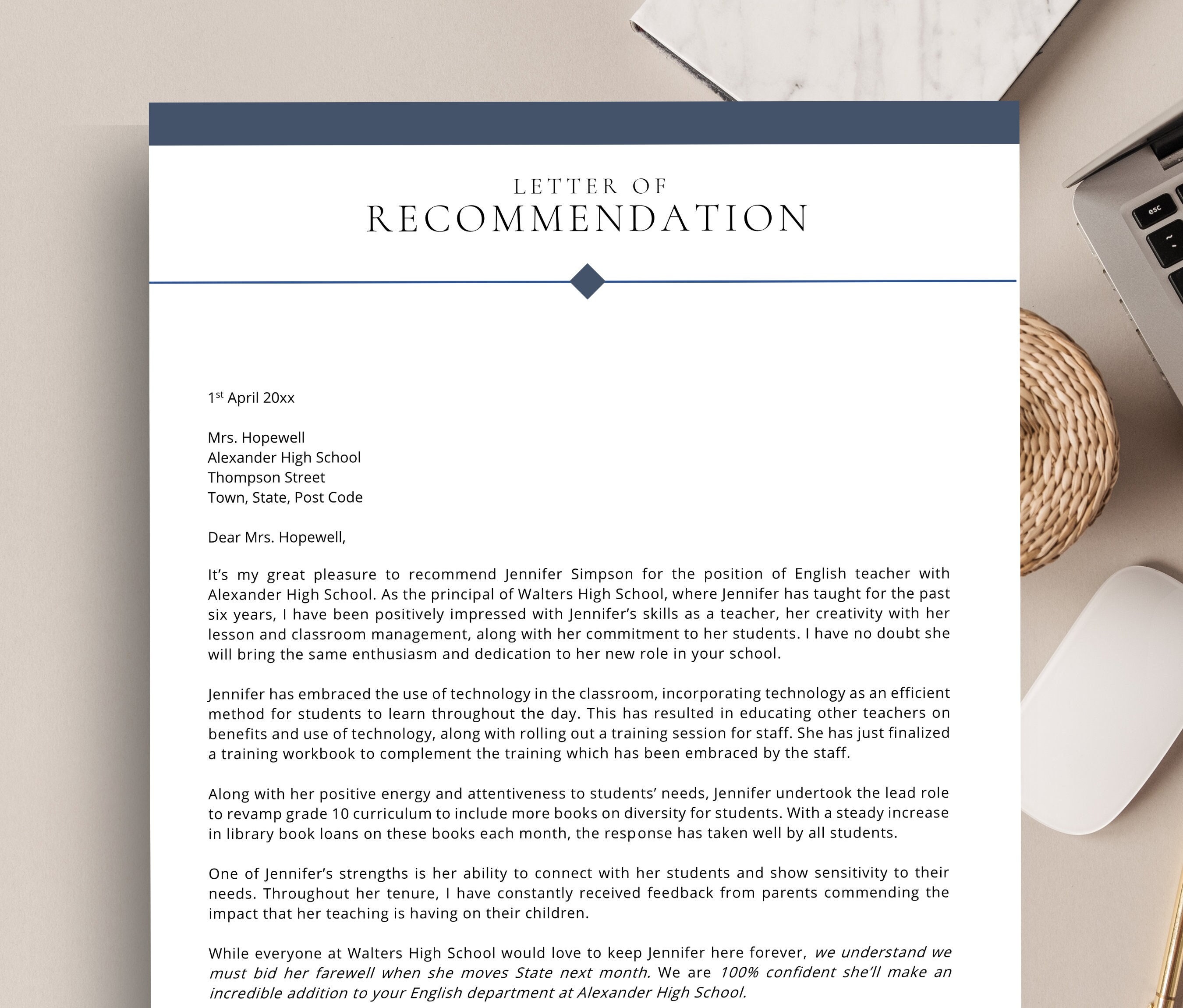Simple Info About Can A Parent Be Reference
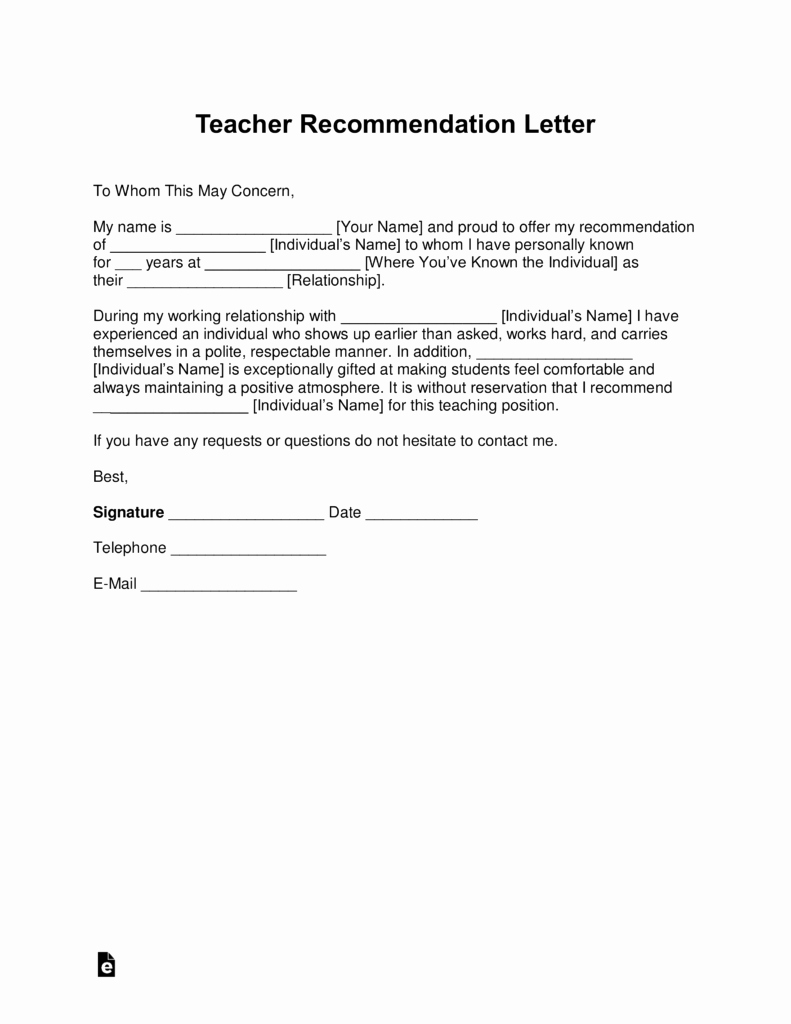
Can Mom or Dad Really Vouch for You Professionally? Let's Unpack This.
1. The Tricky Terrain of Family References
So, you're on the hunt for a new job, internship, or maybe even applying for a scholarship. You've got your resume polished, your cover letter sparkling, and then... the reference section. Cue the head-scratching. Naturally, your mind drifts to those who know you best, who've seen you at your finest (and maybe your not-so-finest): your parents. But is tapping Mom or Dad for a professional reference really a savvy move? Let's explore.
In a nutshell, the answer is usually "it depends," but leaning towards "probably not." While your parents undoubtedly think you're the bee's knees (and you probably are!), their perspective is inherently biased. Employers are typically looking for objective assessments of your skills, work ethic, and how you interact in a professional environment. Your parents, bless their hearts, are unlikely to provide that unbiased viewpoint.
Think of it like this: if you were hiring someone, would you place as much weight on a glowing recommendation from their mother as you would from a former supervisor or professor? Probably not. The goal of a reference is to provide potential employers with insights into your performance and character from people who have witnessed them firsthand in a work or academic setting.
However, there are a few exceptions, which we will explore further. For instance, if you've worked closely with your parents in a family business or a unique situation where they've directly supervised your professional development, then it might be acceptable. But proceed with caution!
When Might a Parent Reference Actually Work? A Few Scenarios.
2. Navigating the Gray Areas
Okay, so we've established that using your parents as references is generally a no-go. But like any good rule, there are exceptions. Maybe you've been actively involved in the family business since you could reach the cash register. Or perhaps your parent is a highly respected professional in your field and has mentored you extensively (without direct familial employment). Let's dive into the rare cases where a parental reference could work.
Scenario #1: The Family Business Ace. If you've genuinely held a significant role in a family-owned company, and your parent has directly supervised your work, then a reference from them might be considered. However, transparency is key. Clearly state the relationship in your application and be prepared to articulate how your parent was able to provide objective feedback and guidance.
Scenario #2: The Industry Mentor (Who Happens to Be Mom/Dad). Perhaps your parent is a renowned expert in your chosen field and has served as your mentor, offering guidance and insights into the industry. In this instance, the reference should focus on their mentorship and the skills you've developed under their tutelage. Again, full disclosure is crucial.
Scenario #3: Early Career or Unique Circumstances. If you're just starting out in your career and have limited professional experience, a parent might be able to speak to your work ethic, responsibility, and character traits. But even in this case, prioritize references from teachers, coaches, or volunteer supervisors whenever possible. These sources typically hold more weight.
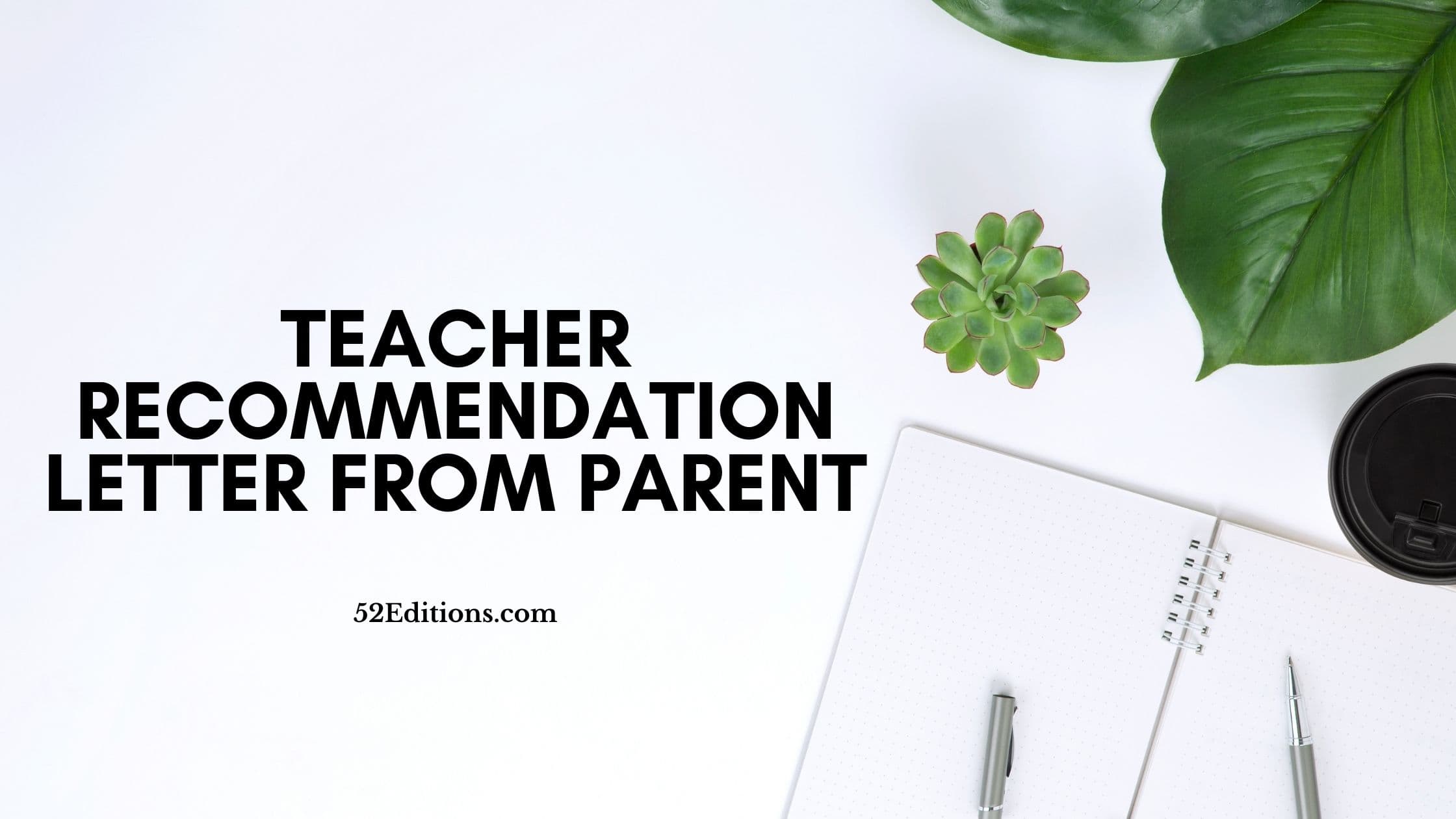
Teacher Letter From Parent (Sample) // Get FREE
The Better Alternatives
3. Crafting a Winning Roster of References
So, if Mom and Dad are generally off the table, who should you be asking to vouch for you? The key is to think strategically about who can best speak to your skills and qualifications for the specific job or opportunity you're pursuing. Let's explore some excellent alternative options.
Former Supervisors: These are your gold-standard references. If you've left a job on good terms, your former boss is ideally positioned to discuss your performance, work habits, and contributions to the team. Always reach out to them beforehand to ask if they're willing to serve as a reference and to provide them with a copy of your resume and a brief overview of the role you're applying for.
Professors or Instructors: If you're a student or recent graduate, professors can provide valuable insights into your academic abilities, critical thinking skills, and work ethic. Choose professors who know you well and who have seen you excel in their courses. Again, ask for their permission and provide them with relevant information about the position.
Colleagues or Teammates: Peers who have worked alongside you can speak to your collaborative skills, communication abilities, and your overall contribution to a team environment. Select colleagues who you trust and who can provide positive and specific examples of your work.
Mentors or Advisors: If you've had a mentor or advisor who has guided your professional development, they can offer a unique perspective on your growth, potential, and career aspirations. They can also speak to your commitment to learning and your ability to take feedback.
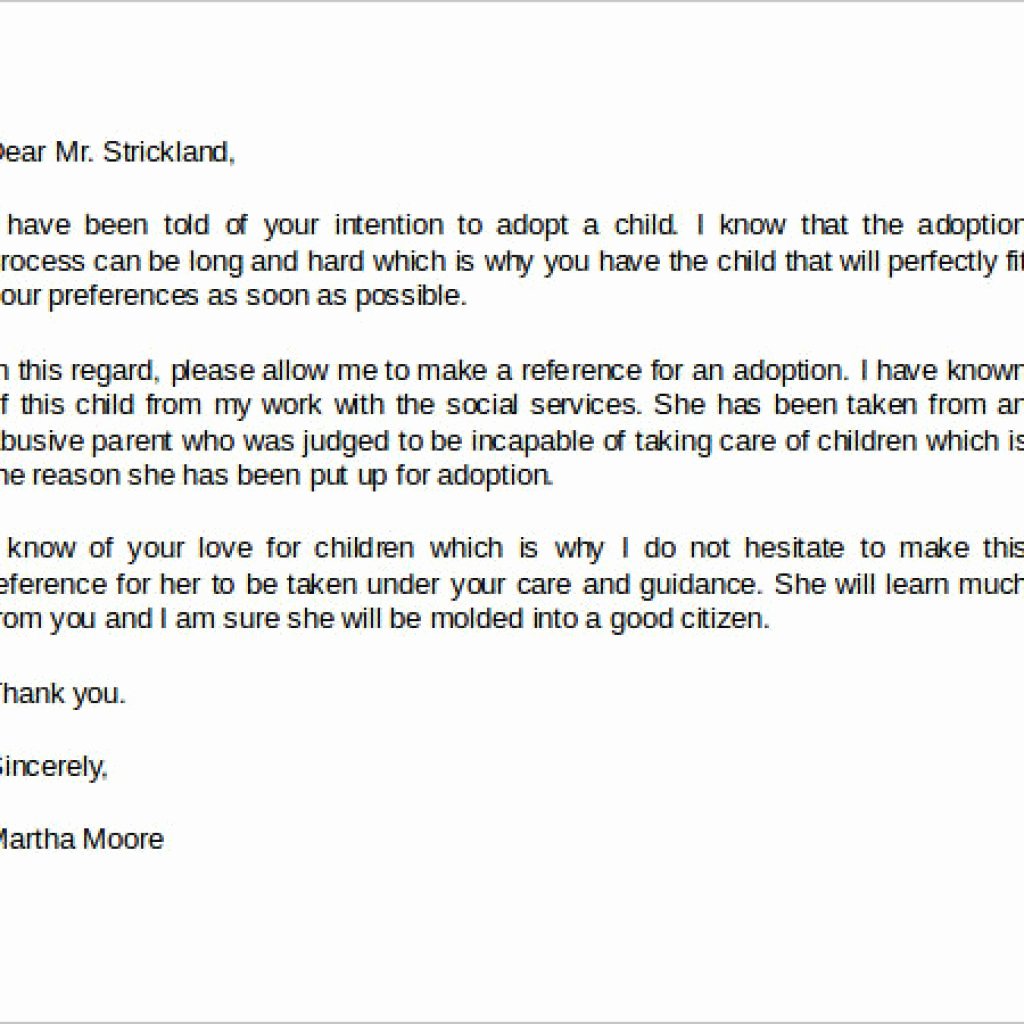
Sample Letter For Adoptive Parents
Handling the "No Experience" Dilemma
4. Making the Most of Limited Experience
Let's face it: everyone starts somewhere. And for many job seekers, especially those early in their careers, the biggest challenge is often a lack of formal work experience. So, how do you build a strong reference list when you haven't had a ton of jobs or internships? The answer lies in getting creative and highlighting transferable skills from other experiences.
Volunteer Coordinators: If you've volunteered for a charity or non-profit organization, the volunteer coordinator can speak to your reliability, dedication, and ability to work independently. They can also highlight your commitment to service and your willingness to go the extra mile.
Club or Organization Leaders: If you've held a leadership position in a school club or organization, the advisor or president can attest to your leadership skills, organizational abilities, and ability to motivate others. These experiences demonstrate your ability to take initiative and manage projects.
Coaches or Instructors (Sports or Activities): If you've participated in sports or other extracurricular activities, your coach or instructor can speak to your teamwork skills, discipline, and ability to learn and improve. These experiences demonstrate your ability to follow instructions and work towards a common goal.
Academic Project Partners: If you've worked on group projects in school, reach out to your partners. They can speak to your collaboration skills, your ability to meet deadlines, and your contributions to the project.
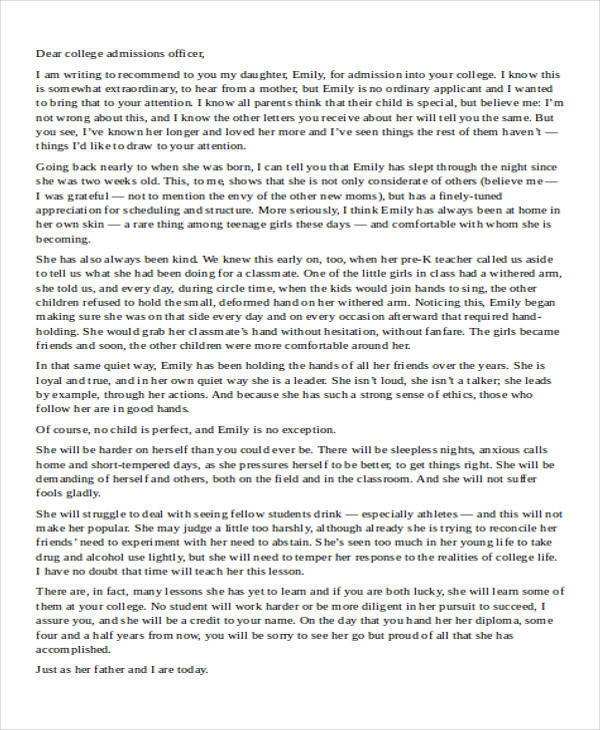
The Dos and Don'ts of Asking for a Reference (and Keeping Them Happy!)
5. Reference Etiquette
Securing a great reference is just the first step. It's also crucial to handle the entire process with professionalism and courtesy. After all, these people are doing you a favor, so it's essential to make the experience as smooth and positive as possible for them.
Do: Always ask for permission. Never assume that someone is willing to be a reference. Reach out to them individually and explain why you're asking them and what kind of role you're applying for. Provide them with your resume and a brief description of the job. This helps them tailor their reference to the specific requirements.
Don't: Wait until the last minute. Give your references plenty of time to prepare their recommendations. Ideally, you should reach out to them at least a week or two before the deadline. This shows respect for their time and allows them to provide a thoughtful and thorough reference.
Do: Keep your references informed. Let them know when you've submitted your application and when they can expect to be contacted. After the interview process, update them on the outcome, regardless of whether you get the job or not. This shows that you value their support and appreciate their efforts.
Don't: Forget to say thank you! A simple thank-you note or email goes a long way in showing your gratitude. Consider sending a small gift, such as a gift card to a coffee shop or bookstore, as a token of your appreciation. This gesture will solidify the relationship and make them more likely to help you in the future.
:max_bytes(150000):strip_icc()/TheBalance_Letter_2062972_2_2022-935c56e0ee974f3dab57b30d6543a0d2.jpg)
